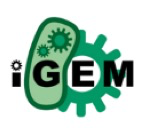XMaS Science Gala at University of Warwick
Everyone is welcome to bring family and friends to join us on the physics concourse for a science gala celebrating the vast array of careers and opportunities available in STEM (Science, Technology, Engineering and Maths). From 6.00-7.00pm we will have loads of exhibition stands showcasing research, hands on demos, as well as opportunities to visit our planetarium and research labs. 7.00pm-8.20pm we will have talks from inspirational scientists, hear from the physics society and take a virtual visit to CERN!
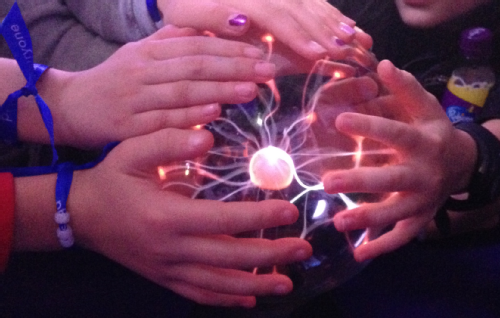
Please register here!
The Programme;
6.00pm-7.00pm- Exhibitions and tours- Physics Concourse
(see below who will be joining us!), dinner will be served.
6.10pm, 6.20pm, 6.30pm, 6.40pm- Tours of teaching labs (Pick up your tickets from the registration desk)
6.00pm, 6.20pm, 6.40pm- Planetarium (details below)- over the Bridge to Physical Sciences PS1.28 (Pick up your tickets from the registration desk)
7.00-8.20pm Talks- Physics Lecture Theatre (PLT)
7.00pm- Introduction- Professor Pam Thomas
7.10pm- Particle Physicist- Dr Sinead Farrington
7.20pm- Virtual Visit to CERN
7.50pm- Video by C Tomes from last years’ XMaS Scientist Experience
7.55pm- XMaS Scientist Experience- Presented by the winners of last year's trip
8.05pm- Day in the life of Physics Undergraduate- Warwick Physics Society
8.20pm- Close
8.20pm-9.00pm- Exhibitions and tours- Physics Concourse
8.30, 8.40- Tours of teaching labs (Pick up your tickets from the registration desk)
8.20, 8.40- Planetarium- over the Bridge to Physical Sciences PS1.28 (Pick up your tickets from the registration desk)
Our Exhibitions and demos;
 |
Students from last years XMaS Scientist Experience trip to Grenoble share their experiences and what they learnt. Hand in your entry to the XMaS Scientist Experience 2016 here! | |
| Astronomy Research Group from University of Warwick | 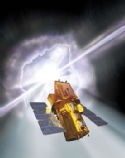 |
At the Astronomy stand, get a taste of the research completed by the Astronomy group in Warwick, Europe's most successful user of the Hubble Space Telescope. Current researchers will be on hand to answer your questions on topics ranging from the destruction of distant planets by white dwarfs in our own Galaxy to the brightest and most powerful explosions in the Universe! |
| Astronomy research Group- the Planetarium | 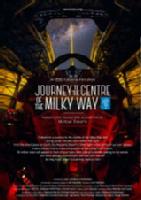 |
Take a 10 minute tour of the centre of our Galaxy in a full 360 degree Planetarium dome and get a glimpse of some of the most powerful telescopes on the planet, the European Southern Observatory's Very Large Telescope, in A Journey to the Centre of the Milky Way! Limited availability- Please pick up your tickets from the registration desk. |
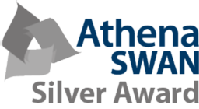 |
||
| Bioimage Analysis (BIA) Lab |  |
How can Maths and Computer Science help with cancer diagnosis? You can find out how cancer diagnosis is currently done in the clinic and how scientists are trying to help make the diagnosis more accurate. Use an interactive software to explore what cancer samples look like. |
| Centre for Fusion, Space and Astrophysics from University of Warwick |  |
Research at the Centre for Fusion, Space, and Astrophysics (CFSA) focuses on plasma physics applied to the grand challenges of magnetic and inertial fusion power, space physics, solar physics, and astrophysics. Visit us to learn what it's like to be a researcher in the field of plasma physics, see the latest movies and images of the Sun from NASA's Solar Dynamics Observatory and make your own magnetic sunspot. |
| Code Club | 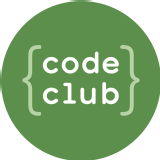 |
Let's inspire the next generation of kids through coding and programming! Code Club is a UK-wide network of FREE after school coding clubs for children aged 9-11. Code club provide resources which take children on a weekly and exciting journey to creating games and animations either in Scratch (which most clubs start off with), HTML/CSS and Python. Run in schools, libraries and community settings across the region, Code Club is looking for new volunteers and hosts to run clubs. Come and meet Tim Wilson, the Regional Coordinator for Code Club and find out more about how you can get involved. |
| Elementary Particle Physics Group from University of Warwick | 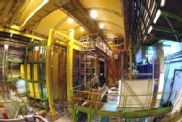 |
Particle Physics tries to understand the Universe at the most fundamental level i.e. at the level of the smallest elements of matter that we know about. Ironically, to do this, often involves building some of the largest pieces of scientific apparatus ever produced - such as the Large Hadron Collider (LHC) at CERN. We now know that understanding the very small is essential to understand the very large and so Particle Physics has close connections with Astrophysics and Cosmology. To help A-level students get an exposure to this fascinating field of research we run an annual Particle Physics Masterclass which mixes presentations of our current understanding with an opportunity to analyse real data from an LHC experiment and to discuss the outcome as part of a live link-up with the CERN lab. |
| Energy GRP |  |
The rise in the global demand for energy requires profound changes in the way in which it is produced and utilised. Such changes are vital if ambitious targets for reducing greenhouse gas emissions are to be achieved. 'Energy' is one of the University of Warwick’s research priorities and we are addressing global challenges through our world-class multi-disciplinary research. Our stand includes some hands on demonstrators of a variety of new and developing energy technologies as well as an overview of current research. |
| Engineers Without Borders | 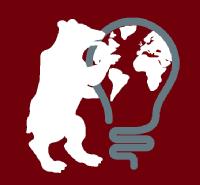 |
Engineers Without Borders Warwick are a student run society for anyone who is interested in International Development and Renewable Technologies. Through engineering solutions we serve the needs of disadvantaged communities all over the world. Our stand will present some of the amazing projects we're running this year on campus and the great work of our MLP team in Tanzania. Also power our bike for your free smoothie! |
| Imagineering Foundation | 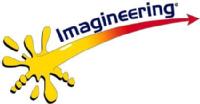 |
The Imagineering Foundation is an independent education charity that aims to enthuse and nurture young engineers of the future. Its main activities are after-school Imagineering Clubs for 8-13 year olds, public events, such as the Imagineering Fair, special projects on behalf of engineering companies and in-school challenges demonstrating the applications of technology. At the XMaS Science Gala, the Imagineering display focuses on the design and operation of hydraulic machines and the application of electromagnetism in everyday devices. |
| Institute of Engineering Technology |  |
What is bugging you this February? The IET is the largest institution of its kind with over 160,000 Members world-wide. It supports schools through its Faraday website http://faraday.theiet.org and it’s Schools Liaison Community which is free to join. There are many free posters and project ideas available. Come and meet the local Schools Liaison Officer - Derrick Willer dwiller@theiet.org |
|
|
|
Join members of the Warwick Integrative Synthetic Biology (WISB) centre to find out more about synthetic biology and how University of Warwick undergraduate students take part in the annual 'international Genetically Modified Organism' (iGEM) competition. |
| IGGY- International Gateway for Gifted and Talented Youth |  |
IGGY is the University of Warwick-led social and educational network for the brightest young people from around the world. Membership is free to students in the UK aged 13-19 years and offers access to an online service providing challenging academic resources: educational videos and articles, quizzes and competitions, online challenges, research projects and lots more. Joining IGGY allows pupils to become part of a worldwide community representing over 80 countries and provides the opportunity to interact with leading academics, subject experts and IGGY’s dedicated team of online student mentors. Visit the IGGY stand to talk to one of the team and register for membership. |
| |
The Institute of Physics is a leading scientific society. It is a charitable organization with a worldwide membership of more than 50,000, working together to advance physics education, research and application. This stand will welcome all age groups and interest levels - from doing fun little experiments to receiving advice on your university or career options. Or maybe you would like to sign up as a member. |
|
| Nuffield Research Placements |  |
Nuffield Research Placements give sixth form students hands-on experience of a professional research environment through a 4 - 6 week placement in their summer holidays. The programme is run by the Nuffield Foundation and works through regional networks to link talented students with organisations undertaking research. By working with professional researchers, students gain an insight into a wide variety of science, technology, engineering and maths (STEM) careers. |
| Warwick Physics Society |  |
Hi there, we are Warwick physics society. We are an academic society at Warwick focussing on providing a friendly and productive atmosphere between students in physics. The physics society runs help sessions and revision guidance all year round as well as organising social events for students. Some of our events this year include Ten pin bowling, regular quest speakers, Themed nights out, Laser tag, Bar crawls and trips abroad, ESTEC in Holland and CERN in the summer. We aim to help students get the most out of their university experience. If you want to know more about us or university life check out our website (http://www.warwickphysicssociety.co.uk) or ask one of our members. |
| Royal Society of Chemistry | 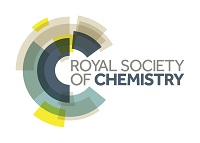 |
Come and find out where studying chemistry can take you. And discover why your nose is better at analysing molecules than any machine. |
| Samphire STEM |  |
Come and join in with some STEM busking-make straw oboes, listen to a coat hanger, spin a toothbrush, build a shot glass building to withstand a bazooka, or a another building challenge and more…talk to us about STEM and other aspects of science education and pick up some really great new posters about engineering. |
| Sarissa Biomedical |  |
Sarissa Biomedical is a biotech spin out from the University of Warwick. We produce microelectrode biosensors to measure relevant neuroactive chemicals in tissue and blood samples. Visit our stand to see our biosensors in action (unfortunately not in blood . . . in Coca-Cola though!) and learn how we’re using them to revolutionise the rapid diagnosis of stroke. |
| Sciencegrrl | 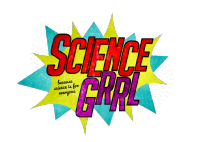 |
The local Coventry and Warwickshire ScienceGrrl chapter will have a stand with information on their activities. ScienceGrrl member Shaheen Charlwood will be available for question and will give hands on experience on the crystal structure of metals (which you can then eat!). |
| Theoretical Physics Research Group | 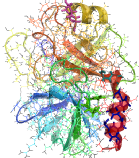 |
The Theoretical Physics Group works on problems in non-equilibrium biophysics, the dynamics of complex fluids, the electronic properties of materials, and quantum information science. The group has a breadth of expertise in materials modelling, in particular in molecular dynamics and electronic structure calculations. There is extensive collaboration with experimental groups working on both hard condensed matter and bio-/soft matter. The Theoretical Physics group looks after the Mathematics and Physics joint honours undergraduate course. At the stand members of the group will describe some of the Group's work and explain what a theoretical physicist does. |
| Ultrasonics Research Group- University of Warwick | 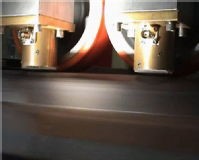 |
|
| Warwick Aerospace |  |
Warwick Aerospace is the interdisciplinary society that's all about space travel. We will be showcasing some of our past projects and works in progress including rockets, a drone and a rover. |
| WISE Campaign | 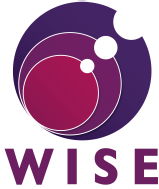 |
Don't Forget to register here!
Directions;
The Physics Concourse connects the third floor of the Physics Building with Chemistry and Engineering Buildings, It can also be accessed from library over the bridge. Please see the interactive campus map.
Car Parking;
Please park in the Physics Car Parks. Car park 10 10a and 10b or alternatively multi-story car park 15.
